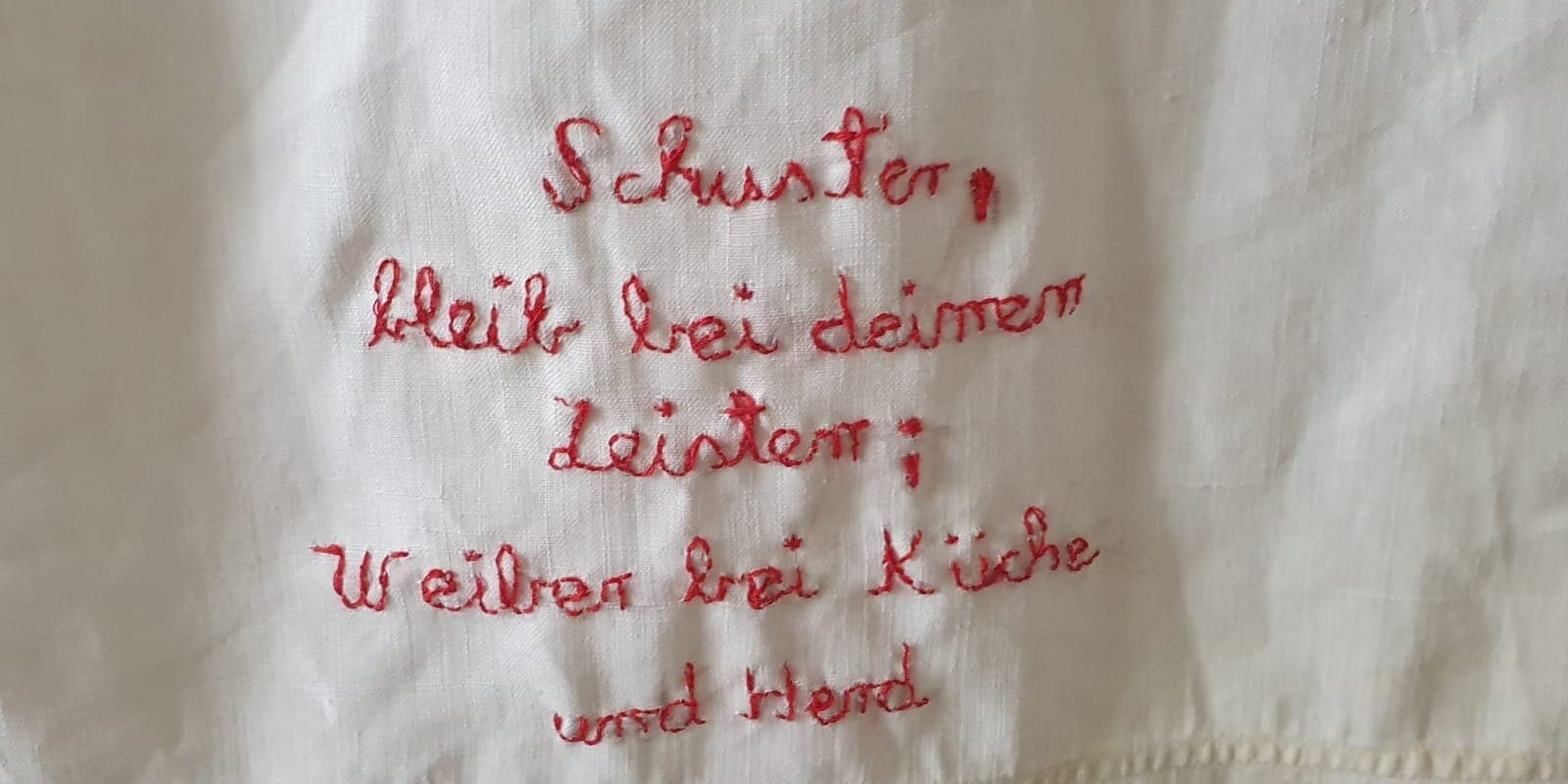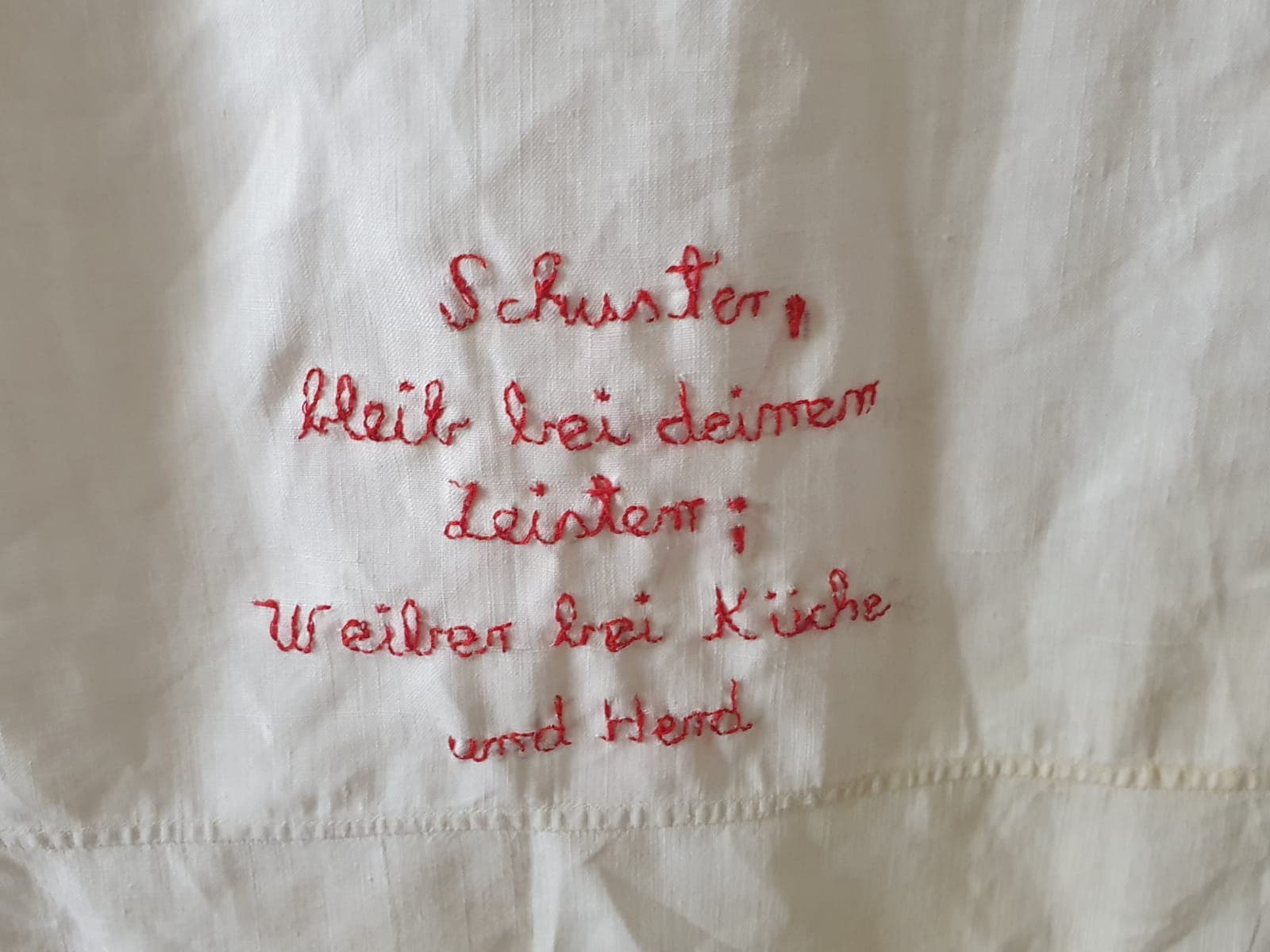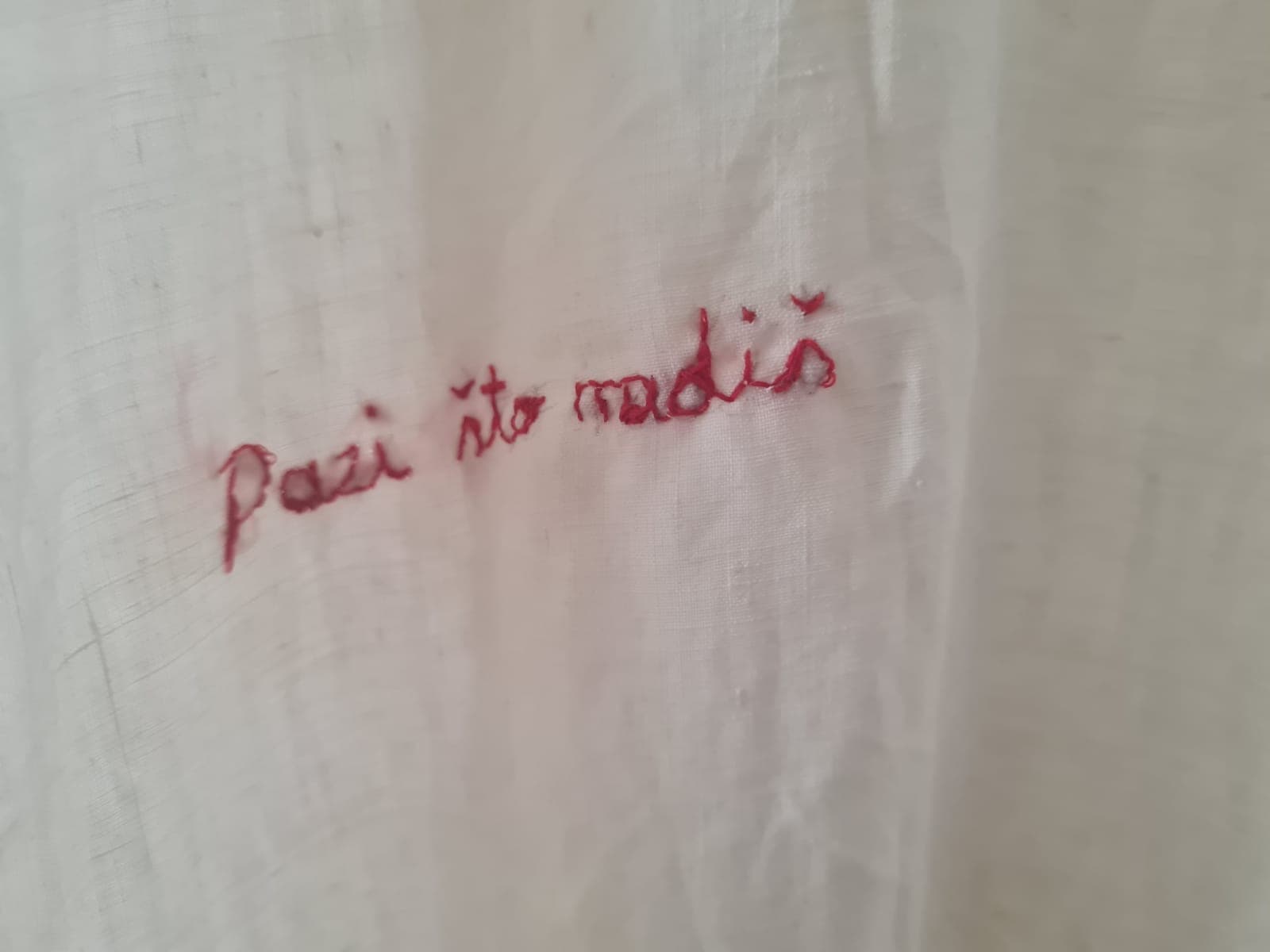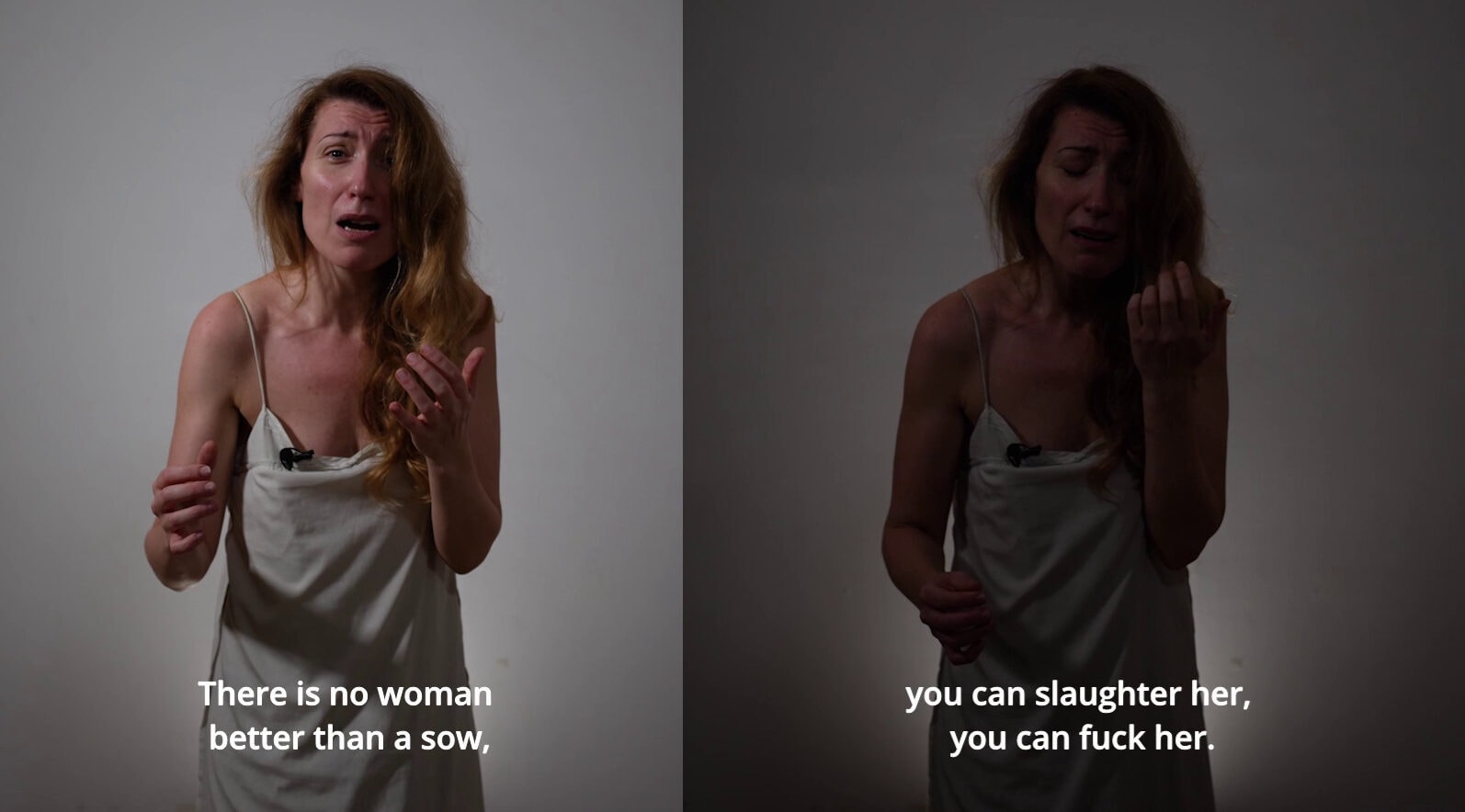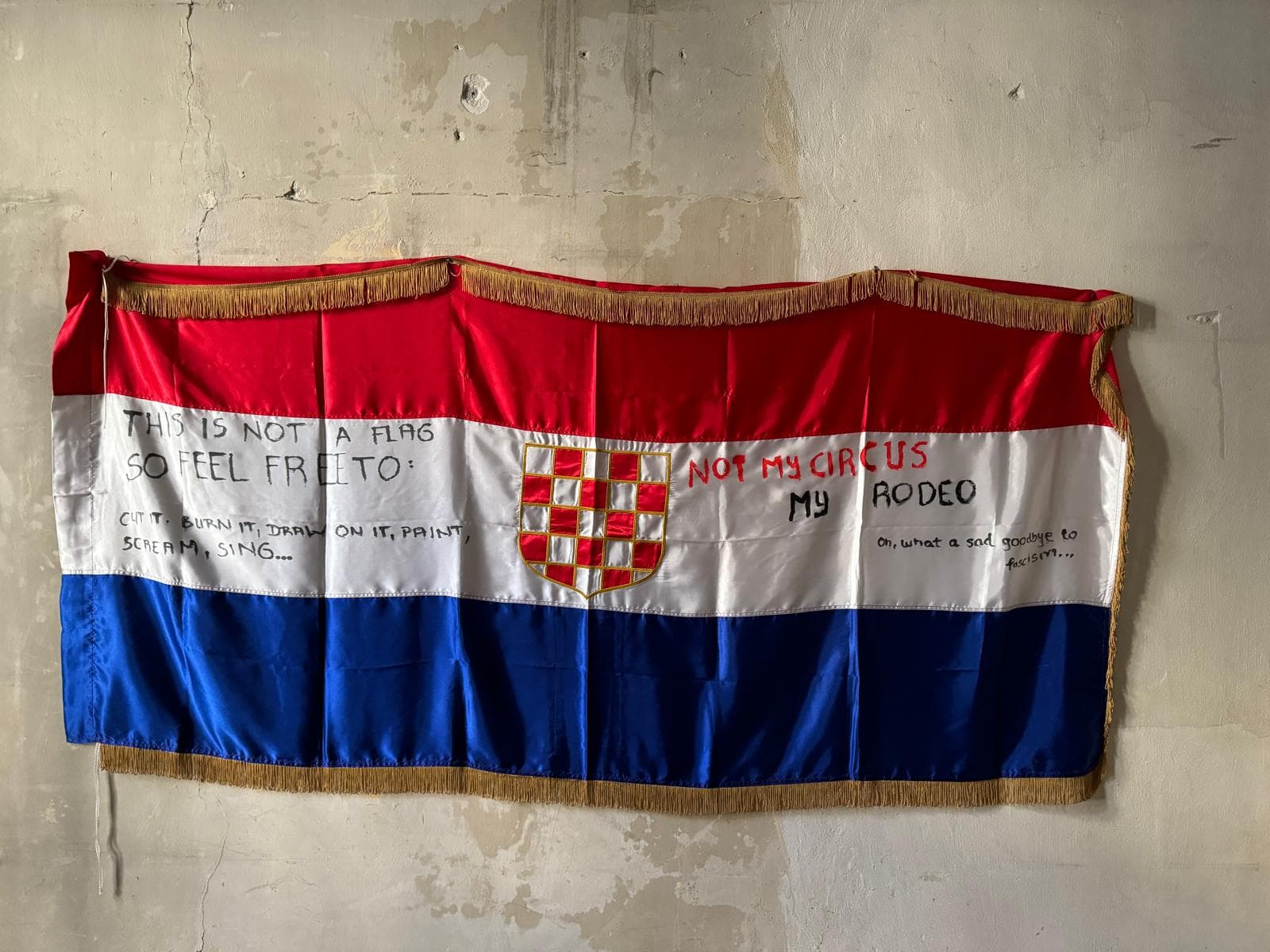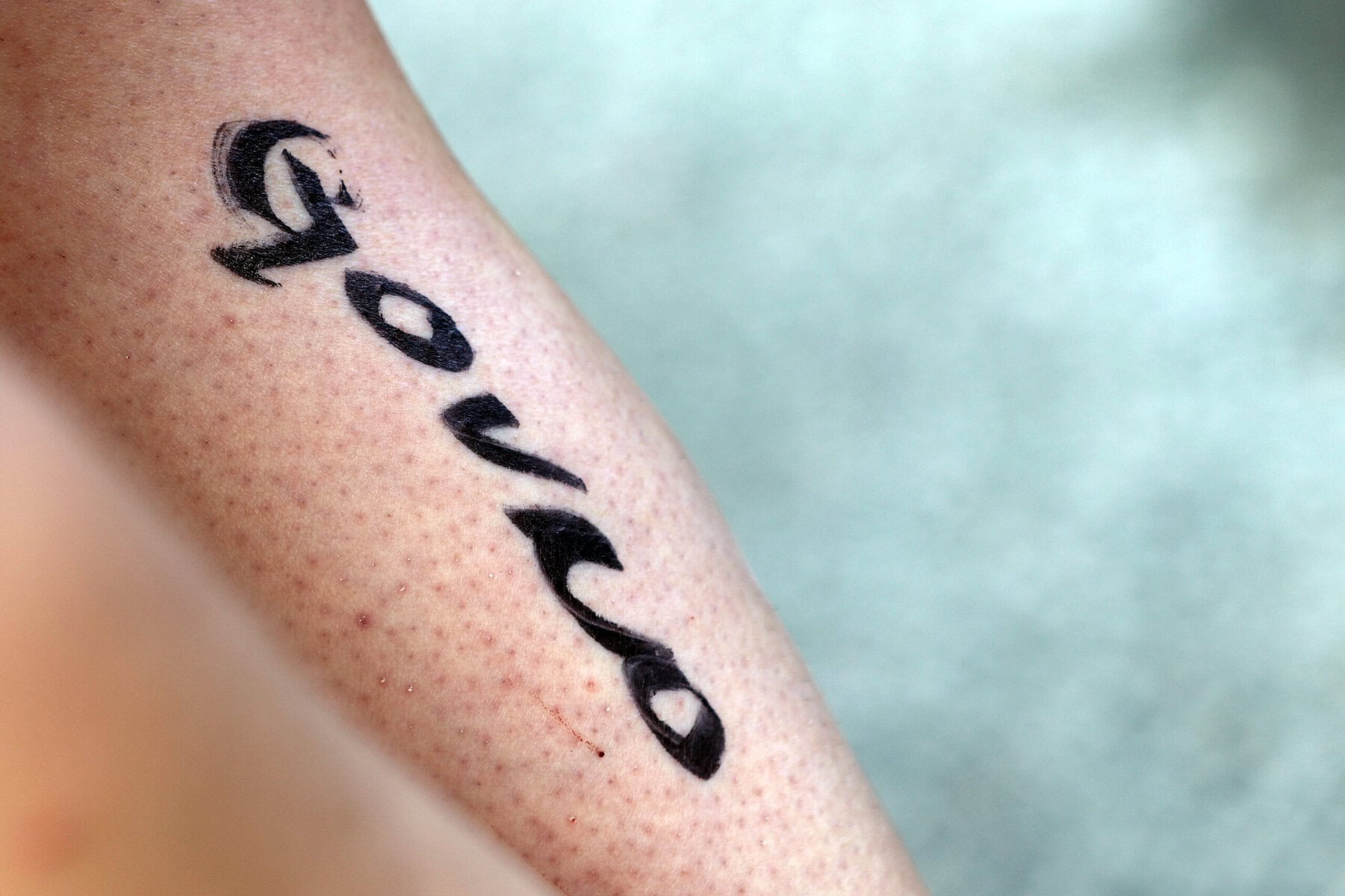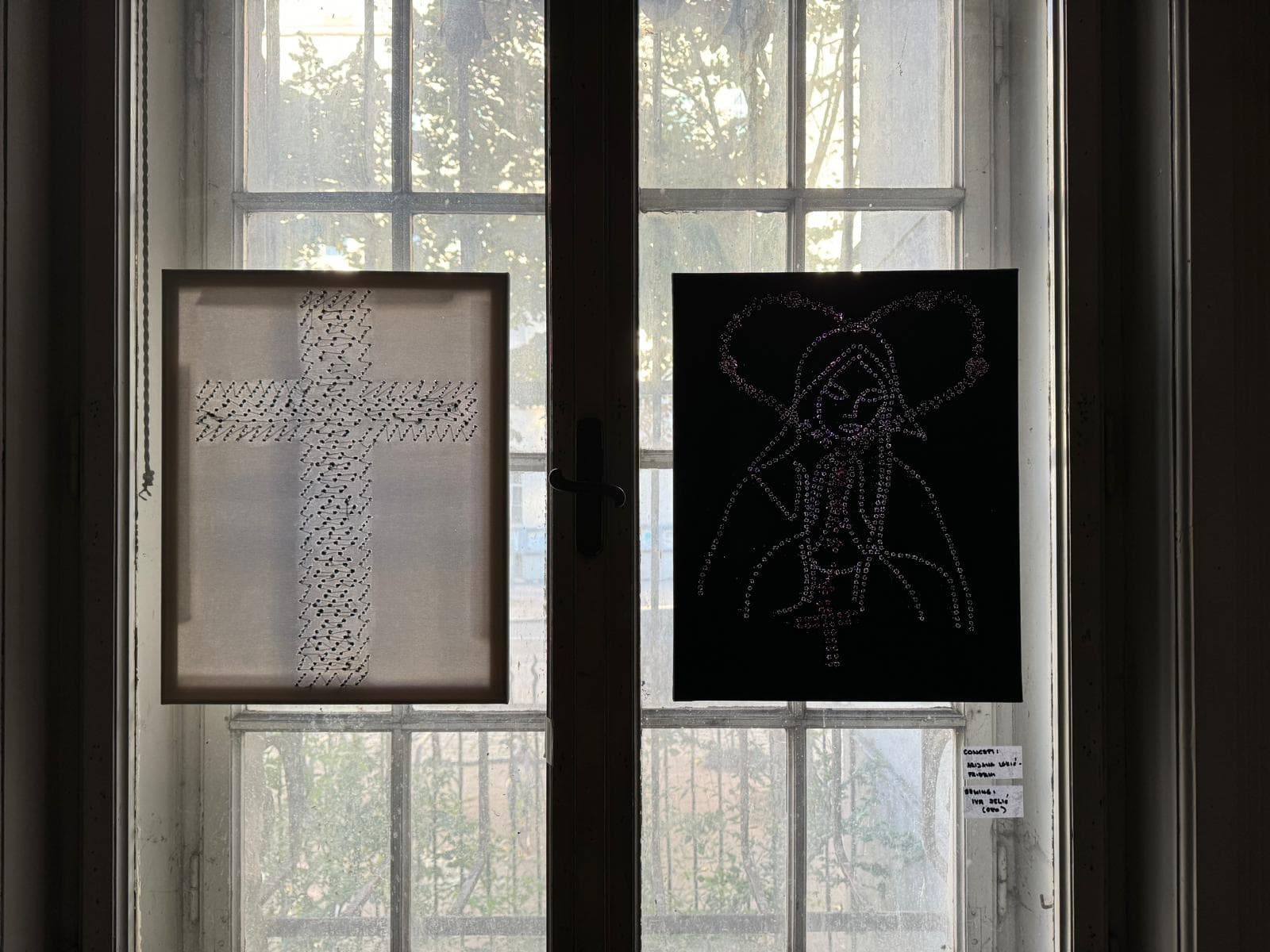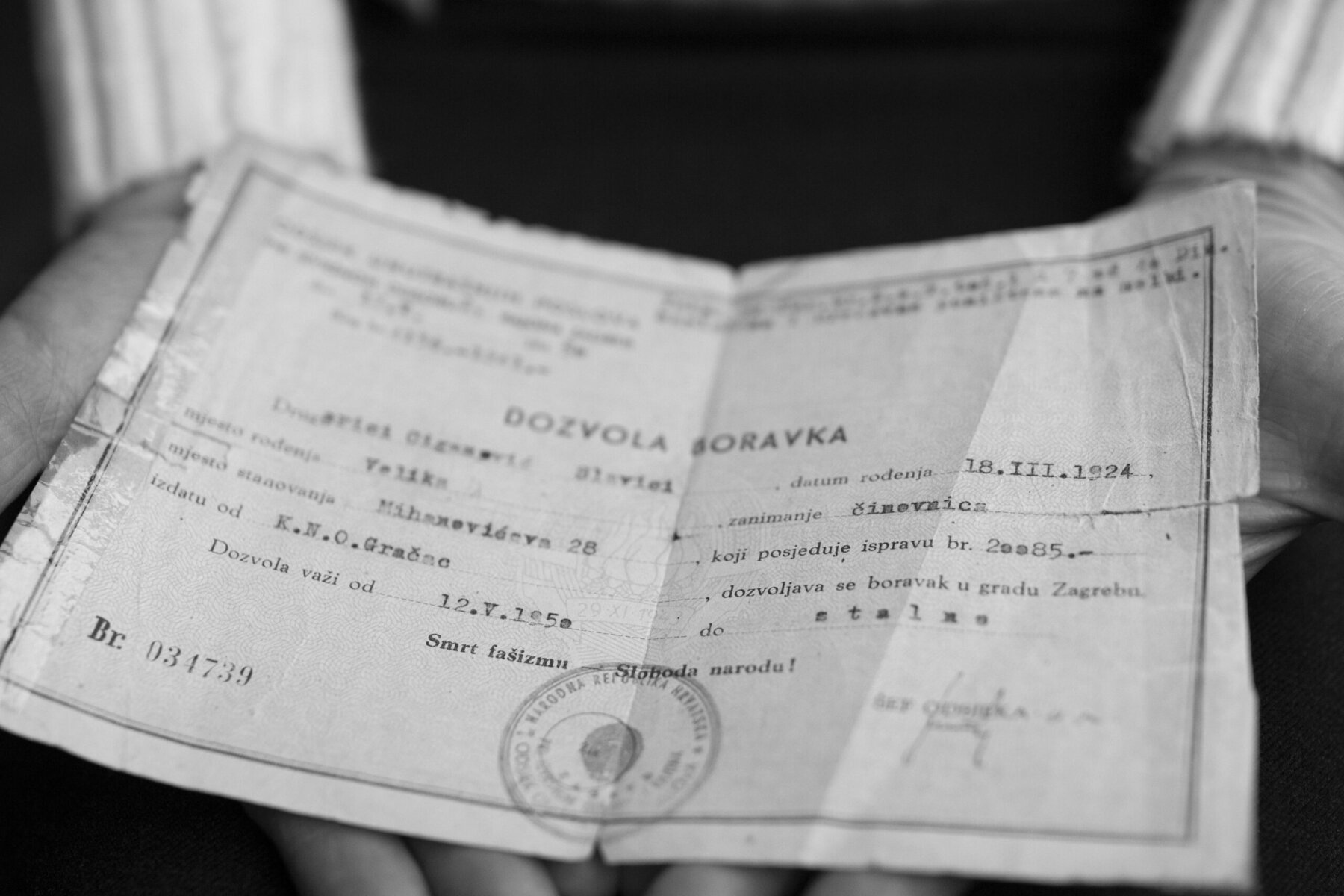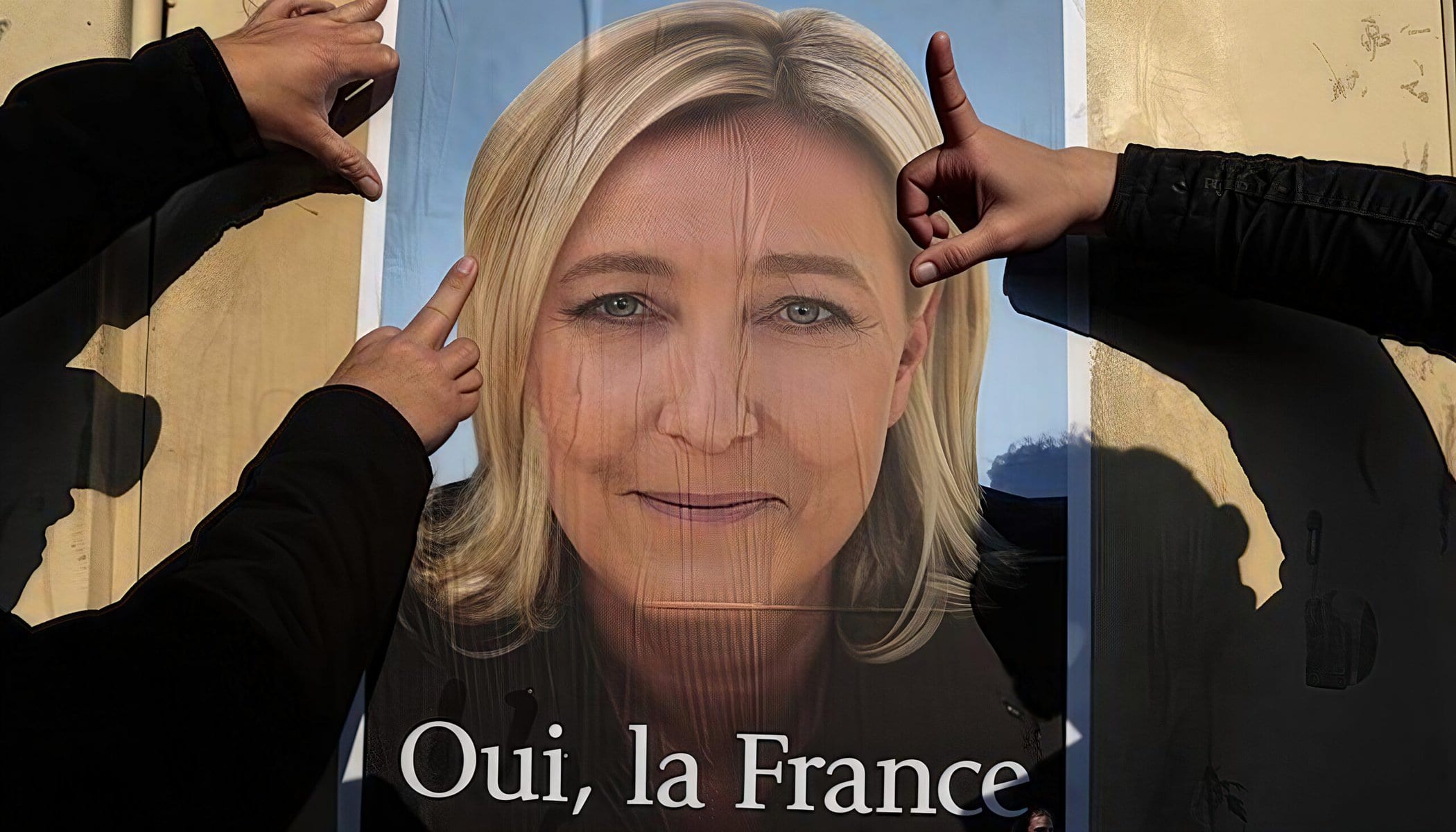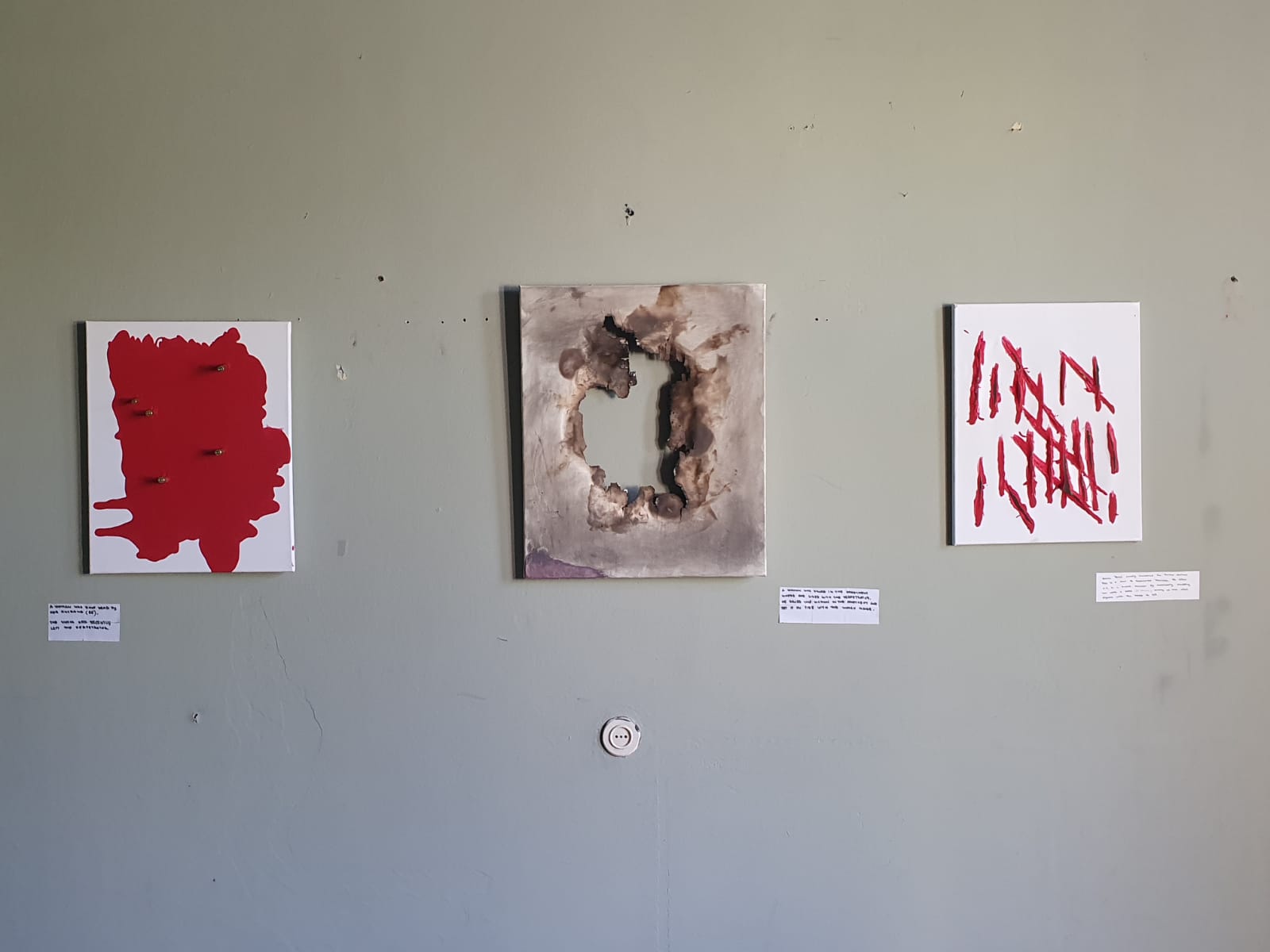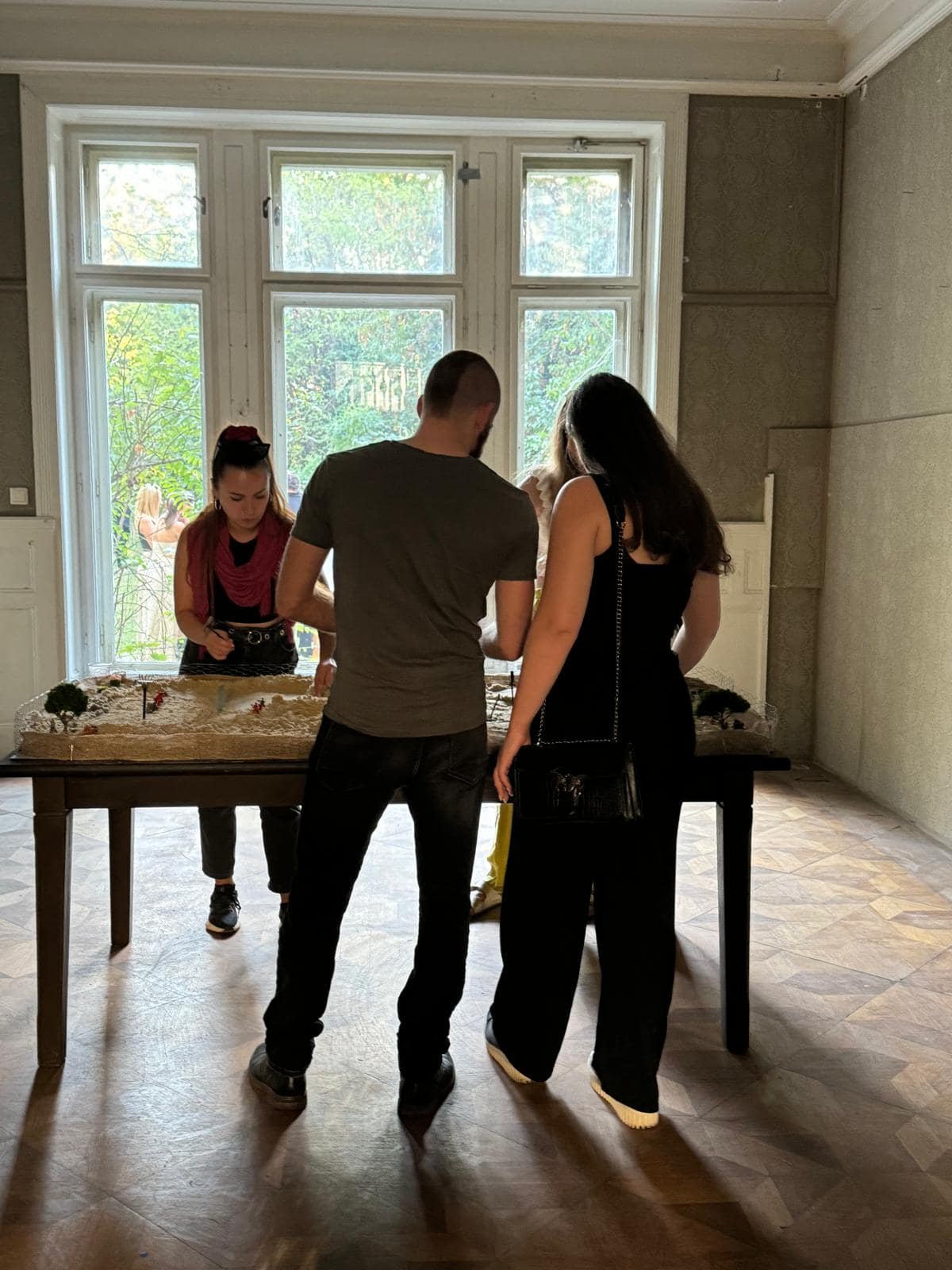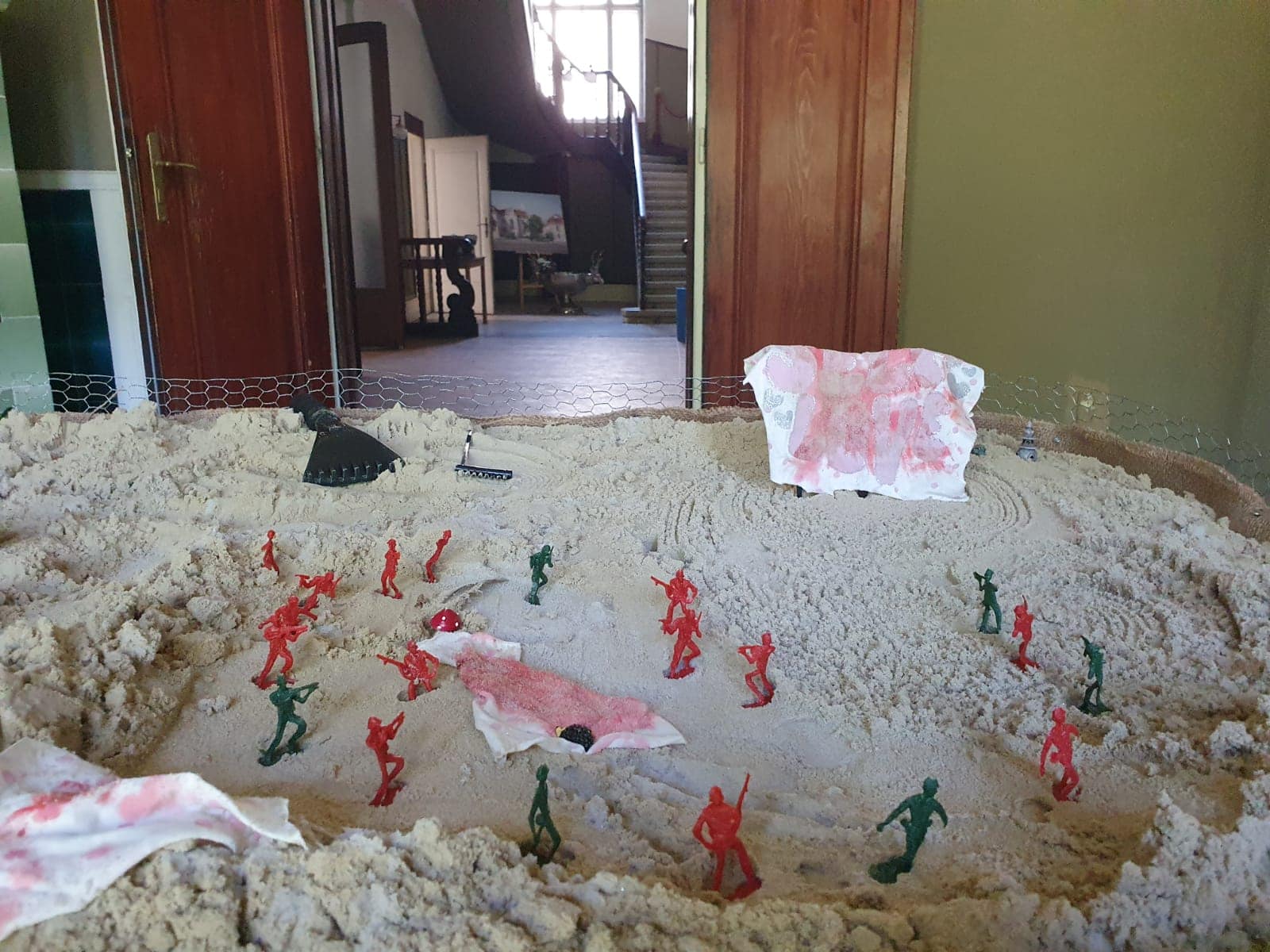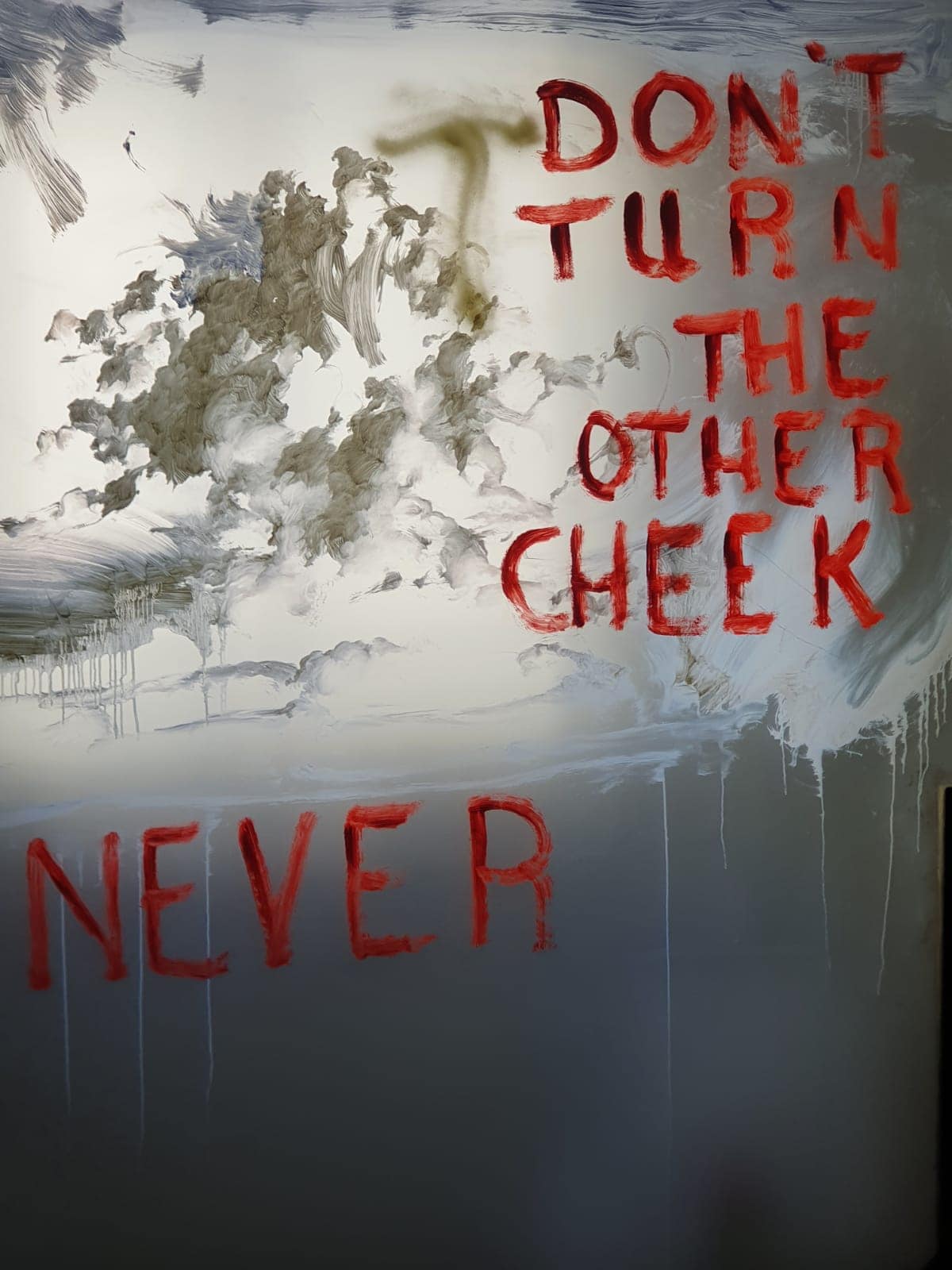On Saturday, September 20, a solo exhibition by Arijana Lekić-Fridrih, one of the most prominent Croatian multimedia artists, opened at the Villa Mautner-Jäger in Vienna . The most comprehensive overview of her artistic work to date was presented to a large audience, including seven new works, and the opening was also marked by the performance of two powerful performances – Fragments and Circle . The exhibition was produced by the Domino association, with curatorial work by Zvonimir Dobrović and Austrian curator Ema Kaiser.
The performance Circle addressed domestic violence. Arijana Lekić-Fridrih symbolically tore down that wall with her own body, repeatedly falling down the stairs in front of the audience. This repetitive act embodied the brutality and helplessness experienced by victims of violence, but also the vicious circle from which it is difficult to escape. The audience was confronted with physical pain, vulnerability and the relentless repetition of the pattern of violence, which made the performance a powerful call for the creation of safe spaces and social change.
In the performance Fragments, the artist explored the emotional and social wounds that women carry throughout their lives, depicted through painful messages written on the performer’s body. Attempts to erase these messages with various symbolic objects – from cloth and soap to glass, flower petals and alcohol – revealed the persistence, but also the impossibility of completely removing deep-rooted wounds. The final image, a body and space marked with indelible traces, left a strong impression of a constant struggle, but also of resilience.
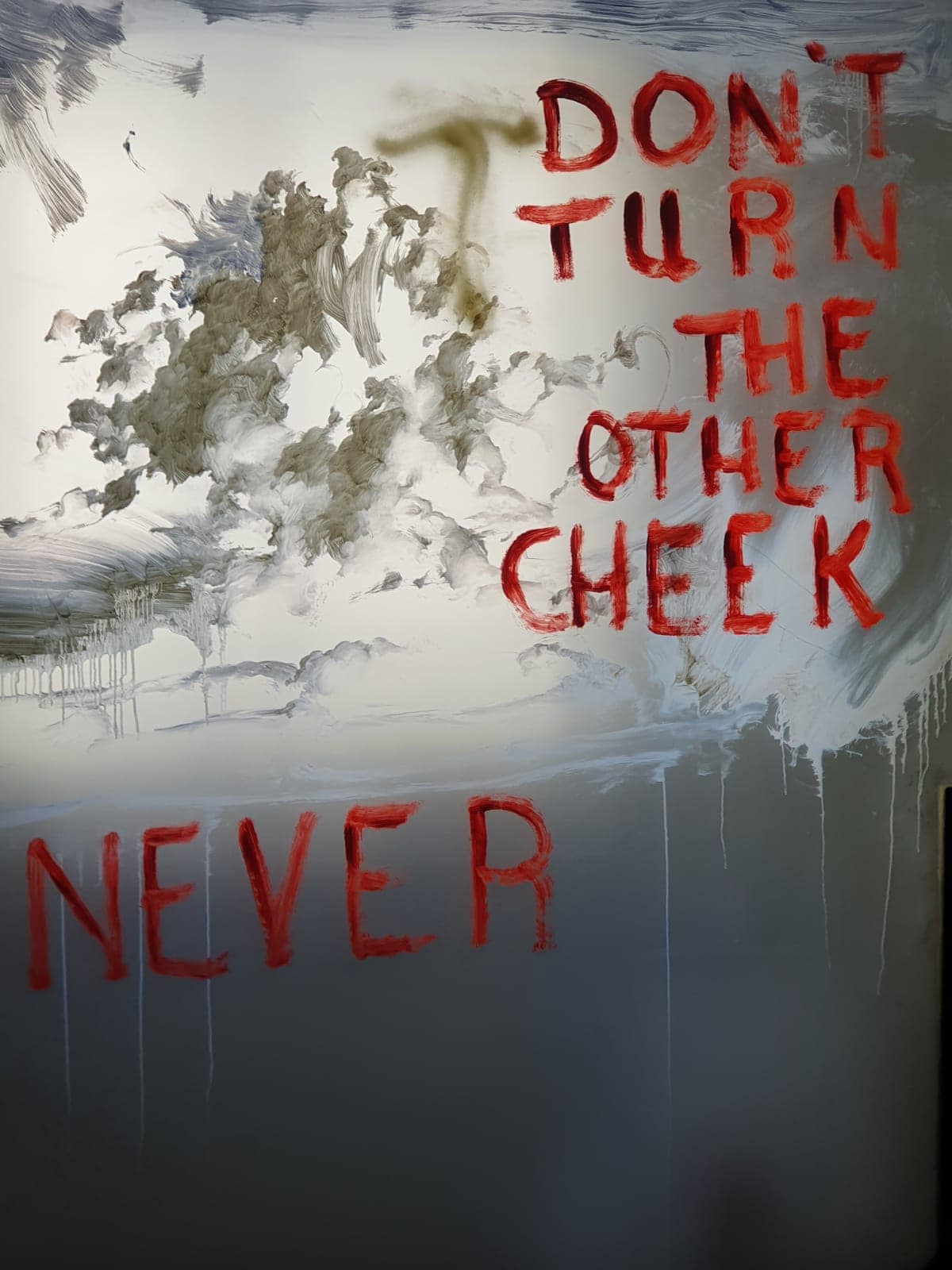
The exhibition’s location in the historic Villa Mautner-Jäger had a strong symbolism. The villa is built for Hertha Mautner von Markhof at the end of the 19th century , a woman of feminist convictions, and in the early 20th century it became a salon of culture and intellectual exchange, where Gustav Klimt, Egon Schiele and Alma Mahler worked. Later history brought persecution, war and the silence of authoritarianism. It was this space, marked by a legacy of visibility and erasure, brilliance and interruption, that proved to be the ideal place for Arijana’s work, which equally tirelessly questions power, memory and resistance.
In her work, Arijana Lekić-Fridrih consistently insists on the visibility of those who are suppressed or erased: women in negotiations with patriarchal codes, queer communities removed from public discourse, individuals whose lives are shaped by insecurity and systematic neglect. Her works clearly show that art cannot be passive – it is a space of action, solidarity and resistance, and in today’s context of the threatening growth of authoritarianism and attacks on women’s and artistic rights, this practice becomes globally relevant.
The exhibition remains open until October 8 and we invite the audience to explore the work of Arijana Lekić-Fridrih at Villa Mautner-Jäger and experience her powerful artistic language live.

